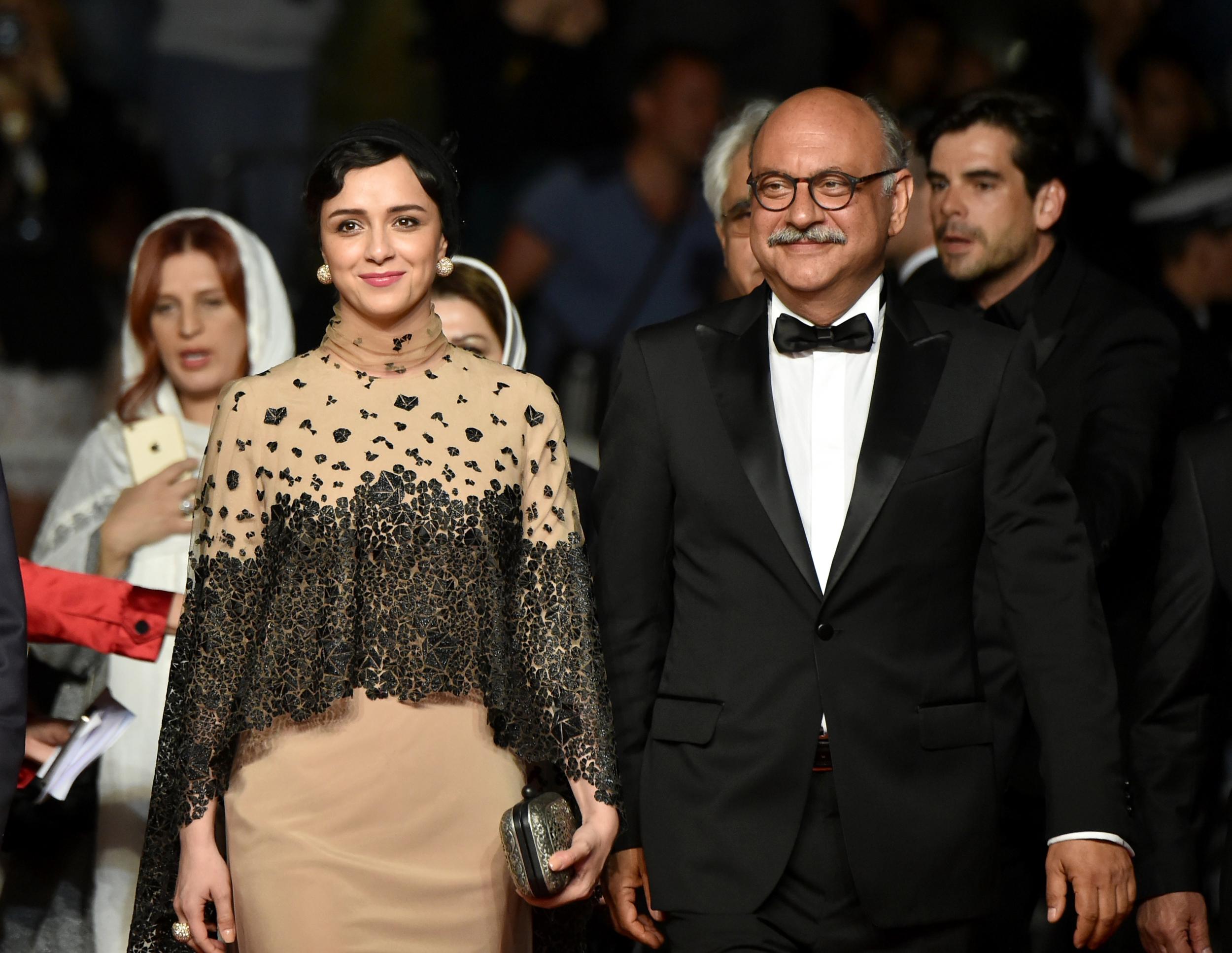Iranian actress Taraneh Alidoosti courts controversy after ‘feminist tattoo’ is spotted on her arm
The actress responded on Twitter by telling her followers: ‘Keep calm and yes, I am feminist’

Your support helps us to tell the story
From reproductive rights to climate change to Big Tech, The Independent is on the ground when the story is developing. Whether it's investigating the financials of Elon Musk's pro-Trump PAC or producing our latest documentary, 'The A Word', which shines a light on the American women fighting for reproductive rights, we know how important it is to parse out the facts from the messaging.
At such a critical moment in US history, we need reporters on the ground. Your donation allows us to keep sending journalists to speak to both sides of the story.
The Independent is trusted by Americans across the entire political spectrum. And unlike many other quality news outlets, we choose not to lock Americans out of our reporting and analysis with paywalls. We believe quality journalism should be available to everyone, paid for by those who can afford it.
Your support makes all the difference.A popular Iranian actress has stirred controversy after what appeared to be a tattoo of a feminist symbol was spotted on her arm.
Taraneh Alidoosti, 32, attended Cannes Film Festival recently to promote her new film, The Salesman, from the Oscar-winning director Asghar Farhadi.
Alidoosti, considered by many as the Natalie Portman of Iran, then appeared at a press conference in the Iranian capital of Tehran, where what seemed to be the symbol for woman power was spotted on her arm, according to The New York Times.
The image prompted a fierce response from some corners. A number blasted Alidoosti over the symbol on social media, claiming it suggested she was pro-abortion and against the family. Whether the tattoo is real and if Alidoosti is a feminist was debated throughout the day until she settled the argument surrounding her stance on feminism with a tweet.
“Feminism doesn’t mean antiman or antifamily,” she wrote in a second post. “Feminism means that each human aside from his or her gender has the right to an individuality and according to that, to choose the life that she or he wants.”
Alidoosti refused to comment on speculation over whether the tattoo was genuine but she has addressed feminism publicly in the past. A year ago, the actress shared a post supporting gender parity on her Instagram page.
The debate surrounding the symbol comes amid a wider fightback against oppressive laws targeting women, such as enforced hijab. It is illegal for women to appear with their heads uncovered in public places in Iran, but many have chosen to do so regardless in a resistance bolstered by the My Stealthy Freedom campaign against compulsory hijab. State authorities responded forcefully this month by arresting eight women who reportedly appeared on social media without wearing a head scarf.
A number of women reacted to the crackdown by sharing pictures of themselves cutting their hair short and dressing as men to bypass morality police enforcing compulsory hijab in the country.
Iranian actors take a serious risk when expressing opinions that go against hardliner's views because of the increased scrutiny their profiles generate. In July 2015, an Iranian state newspaper printed an apology from the actor Bahram Radan after he tweeted in support of the US Supreme Court’s legalisation of same-sex marriage.
The Iranian newspaper Keyhan reportedly called for him to be put on to a blacklist and summoned him to the Ministry of Culture and Islamic Guidance for questioning. The newspaper printed an open letter of apology from Radan shortly after.
That week, Radan posted a powerful image from one of his films on his Instagram page showing him stood with his arms up in surrender as a man held up a gun to his head.
The picture has been interpreted by some as related to the letter, although this was not stated by the actor himself.
Join our commenting forum
Join thought-provoking conversations, follow other Independent readers and see their replies
Comments